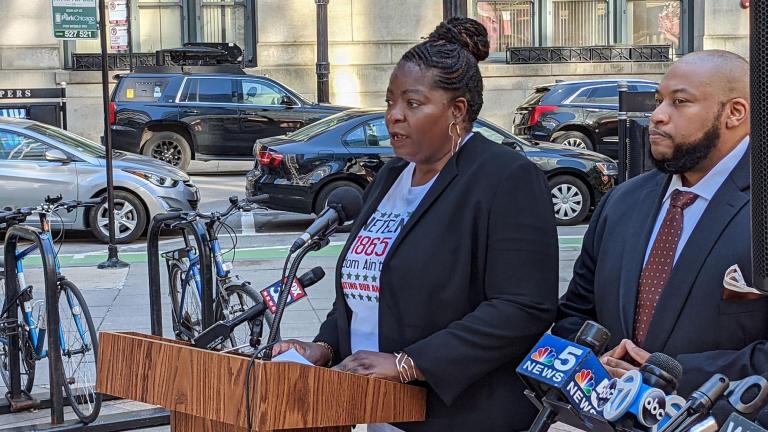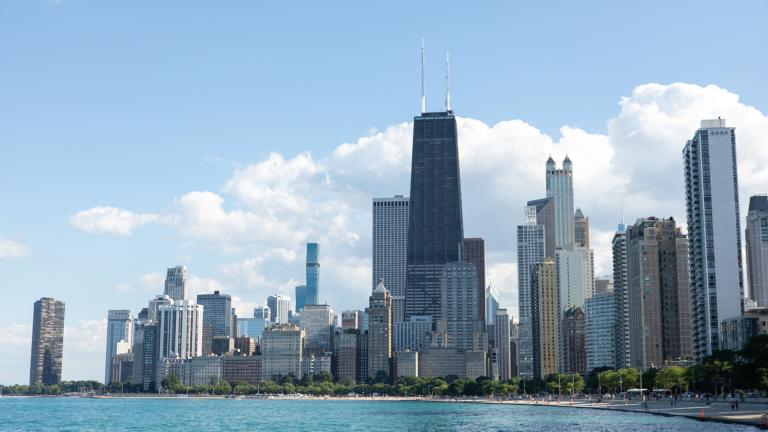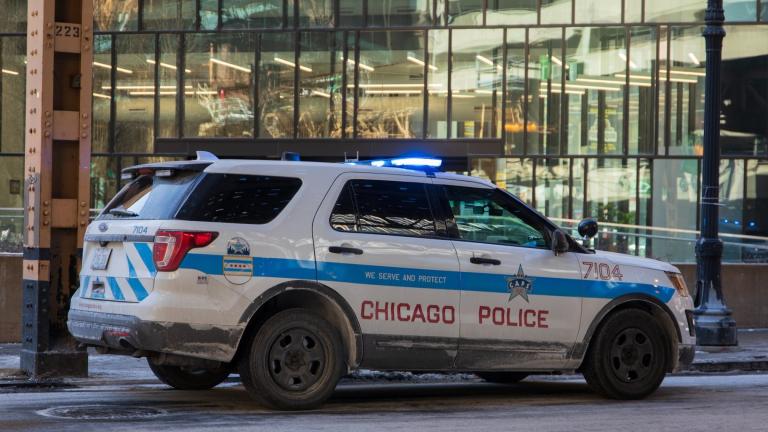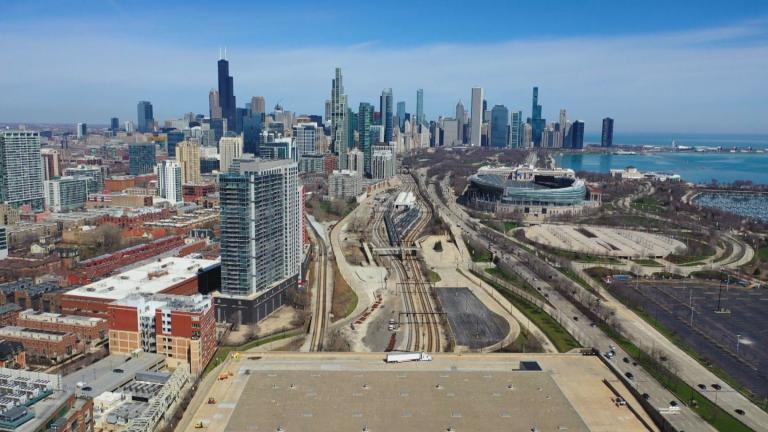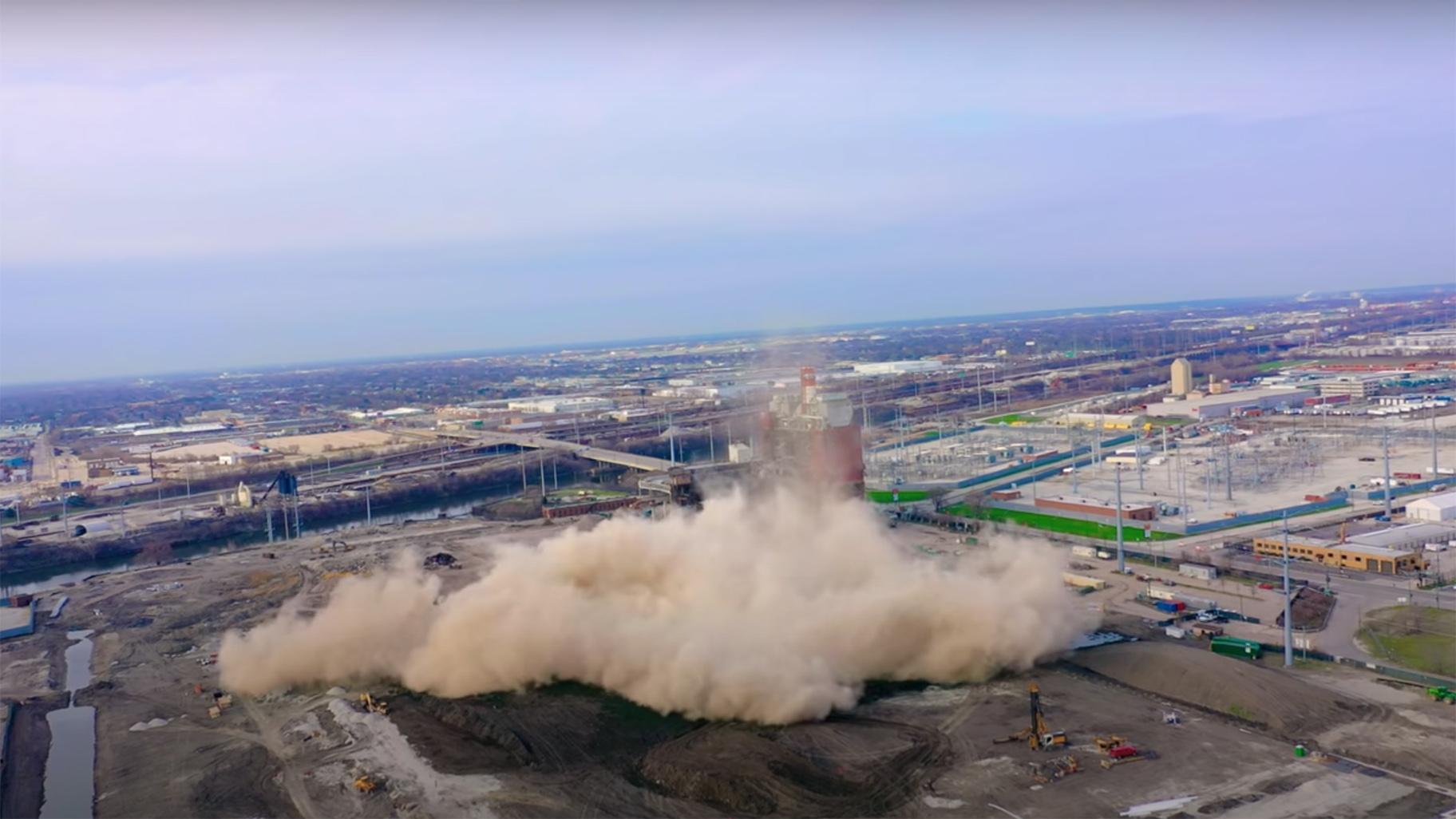 A still image from a video taken of the demolition of the Crawford Coal Plant smokestack, April 11, 2020. (Alejandro Reyes / YouTube)
A still image from a video taken of the demolition of the Crawford Coal Plant smokestack, April 11, 2020. (Alejandro Reyes / YouTube)
No employees of the Chicago Department of Public Health or the Department of Buildings will be fired or suspended for their roles in the botched demolition of the smokestack at the former Crawford coal power plant that sent a plume of dust over six blocks of homes in Little Village in April 2020, according to a report from the city’s watchdog released Friday.
The first report from interim Inspector General William Marback disclosed that Mayor Lori Lightfoot’s administration declined to fire an employee of the Chicago Department of Public Health or punish two other employees of the Department of Buildings responsible for approving and overseeing the implosion of the smokestack.
The discipline was recommended in the final report released by former Inspector General Joseph Ferguson, who left office in October. A committee is searching for his permanent successor.
The implosion on April 11, 2020 came at the onset of the COVID-19 pandemic, which hit Latino neighborhoods like Little Village especially hard during the first wave.
City health officials were warned 213 days before the demolition that the “dust from an event like this is almost cataclysmic,” according to Marbeck’s report. Fifty-one days before the demolition, health officials were told that dust would be “an unpreventable byproduct” of the operation, according to the report.
In addition, senior officials in the Chicago Department of Public Health predicted that the demolition would be a “disaster,” according to the report.
“In the face of those clear forewarnings of obvious risks from experts, senior officials approached their regulatory roles and responsibilities in siloed, technical, reductionist, ‘not-my-job’ fashion,” according to the report.
The senior health official that the inspector general recommended be fired should have known that plans in place to reduce dust from the implosion were “manifestly inferior” and failed to warn Dr. Allison Arwady, the commissioner of the Chicago Department of Public Health, who could have stopped the implosion.
“The senior official’s abdication of responsibility and willful bureaucratic negligence allowed the demolition contractor to proceed unchecked with minimal dust mitigation measures, including a failure to adequately soak the ground prior to the implosion,” according to the report.
The senior official will be reprimanded in writing, according to the Chicago Department of Public Health’s response to the inspector general.
After the botched implosion, Lightfoot said Hilco Redevelopment Partners “utterly failed” to protect the community and called what happened “outrageous and unacceptable.” Hilco officials apologized.
Three firms involved in the implosion of the smokestack at the former Crawford Power Plant paid $370,000 to settle a lawsuit filed by Illinois Attorney General Kwame Raoul. In addition, city officials hit Hilco with 16 citations, which officials told the news media came with $68,000 in fines.
The inspector general’s probe found Hilco at fault for failing to ensure that the implosion did not endanger the health of the public and faulted officials for not taking steps to ensure a plan to protect the surrounding neighborhood was in place and would be followed.
“Despite the egregious repercussions of the redevelopment company’s conduct, the [Office of the Inspector General] did not recommend any further action against them due to the city settling regulatory citations with the company for the same conduct,” according to the report. “In June 2020, the redevelopment company agreed to pay the city $19,500 in full satisfaction and resolution of its citations, did not admit any guilt, and denied wrongdoing or liability regarding the subject of its citations.”
The city’s regulatory oversight broke down amid mistakes made by two Department of Buildings employees involved in the permitting process, the report concluded. That negligence violated city rules and both employees should have been punished, the report concludes.
However, Department of Buildings Commissioner Matthew Beaudet rejected that recommendation, saying the employees did not violate any city rules. Instead, both received “remedial counseling.”
After the incident, which touched off widespread outrage, Lightfoot crafted new rules governing the rarely used demolition method to require community meetings to take place before permits could be issued as well as increased monitoring during the work by a variety of city agencies.
Those new rules are sufficient to prevent similar problems, officials with the Lightfoot administration told the Office of the Inspector General, according to the report.
None of the employees were named in the report, in keeping with rules governing the inspector general.
The demolition of the former coal power plant allowed the construction of a new warehouse, now leased to Target.
Contact Heather Cherone: @HeatherCherone | (773) 569-1863 | [email protected]

